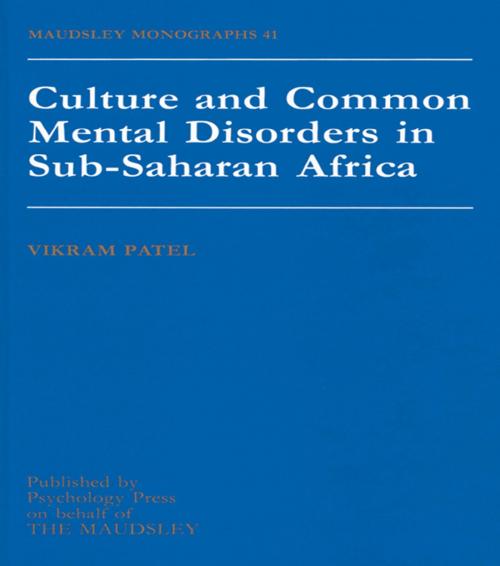Culture And Common Mental Disorders In Sub-Saharan Africa
Nonfiction, Health & Well Being, Psychology| Author: | Vickram Patel | ISBN: | 9781317840916 |
| Publisher: | Taylor and Francis | Publication: | October 31, 2013 |
| Imprint: | Psychology Press | Language: | English |
| Author: | Vickram Patel |
| ISBN: | 9781317840916 |
| Publisher: | Taylor and Francis |
| Publication: | October 31, 2013 |
| Imprint: | Psychology Press |
| Language: | English |
The influence of culture on mental illness has been the subject of considerable academic investigation and debate in recent years. This debate has provoked concerns about the validity and reliability of older methodologies which emphasised either universal characteristics of disorders which were heavily biased towards Euro-American systems, or the culturally relativist approach which saw psychological disorders as products largely of their own culture. The "new" cross-cultural psychiatry proposed that the integration of ethnographic and epidemiological techniques be required to enable a culture sensitive psychiatric model to emerge. This monograph describes a series of research studies conducted in primary care in Harare, Zimbabwe, focusing on the most frequent of all psychological disorders, Common Mental Disorders (CMD). The four consecutive studies are unique in several respects, most notably, the involvement of both biomedical and traditional health care providers at all stages, the development of an indigenous measure of CMD for use in epidemiological investigations, the examination of the relationship between local and biomedical models of psychological disorder and the sociodemographic and economic risk factors for CMD. The experiences and findings of these studies provide new directions in our understanding of the contribution of culture to the presentation, assessment, classification and risk factors for CMD in primary care in an urban African setting. The methodology used also sets out a model for epidemiological research in other areas of mental health in different cultural settings.
The influence of culture on mental illness has been the subject of considerable academic investigation and debate in recent years. This debate has provoked concerns about the validity and reliability of older methodologies which emphasised either universal characteristics of disorders which were heavily biased towards Euro-American systems, or the culturally relativist approach which saw psychological disorders as products largely of their own culture. The "new" cross-cultural psychiatry proposed that the integration of ethnographic and epidemiological techniques be required to enable a culture sensitive psychiatric model to emerge. This monograph describes a series of research studies conducted in primary care in Harare, Zimbabwe, focusing on the most frequent of all psychological disorders, Common Mental Disorders (CMD). The four consecutive studies are unique in several respects, most notably, the involvement of both biomedical and traditional health care providers at all stages, the development of an indigenous measure of CMD for use in epidemiological investigations, the examination of the relationship between local and biomedical models of psychological disorder and the sociodemographic and economic risk factors for CMD. The experiences and findings of these studies provide new directions in our understanding of the contribution of culture to the presentation, assessment, classification and risk factors for CMD in primary care in an urban African setting. The methodology used also sets out a model for epidemiological research in other areas of mental health in different cultural settings.















